
Jo Billows (they/them)
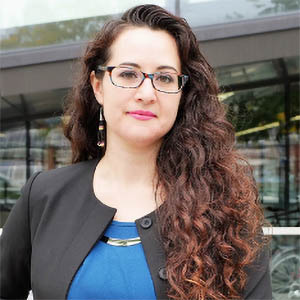
Jennifer Brant
Jennifer Brant, belongs to the Kanien’kehá:ka (Mohawk Nation) with family ties to Six Nations of the Grand River Territory and Tyendinaga Mohawk Territory. Jennifer is an Associate Professor in the Department of Curriculum, Teaching and Learning at the Ontario Institute for Studies in Education of the University of Toronto where she directs the Indigenous Literatures Lab. Jennifer teaches about Indigenous maternal pedagogies, Indigenous literatures, structural and colonial violence in education and her work centres Black and Indigenous feminist solidarities. Jennifer positions Indigenous literatures as powerful narratives that humanize Indigenous peoples through multiple calls for justice, and accountability, and extends these revolutionary literatures to anti-colonial theory and frameworks of Indigenous resurgence. Her publications include the edited collections "Rematriating Justice: Honouring the Lives of Our Indigenous Sisters" (2024) and "Forever Loved: Exposing the hidden crisis of missing and murdered Indigenous women and girls in Canada" (2016).
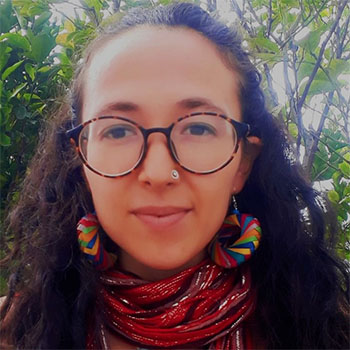
Gioconda Coello
Gioconda Coello is a doctoral candidate in the department of Curriculum and Instruction at the University of Wisconsin-Madison. Her research is interdisciplinary and looks at the history of ideas in education and their relation to the politics of being, Indigenous, Brown and Black lives, and environmental education in Latin America and Southeast Asia. Her work has appeared in Revista Asia-America Latina. She is co-editor of the books Crecimos antinegros en Latino América y el Caribe and Indigenous perspectives on Future(s) and Learning(s): Taking Place.

Sameena Eidoo
Sameena Eidoo (she, her) is an award-winning educator and researcher. She is an Assistant Professor in the Department of Curriculum, Teaching, and Learning, Ontario Institute for Studies in Education, University of Toronto. Born and raised in Mississauga, Sameena is Muslim with roots in India. She identifies as part of Muslim and South Asian Diasporic communities. Her work is interdisciplinary, and her interests encompass critical race theory, cultural studies, foresight and futures studies, global Islam, narrative change, solidarity, transnational feminism, and youth activism. She is the author of Shaping Muslim Futures: Youth Visions and Activist Praxis (2021), a non-fiction book that amplifies the counter-narratives of activist Muslim youth living into their desired futures, and creates space for readers to clarify their own. The book is featured on the Canadian Council of Muslim Women’s Islamic Herstory Month Reading List. Sameena is the Principal Investigator of a SSHRC-funded study focusing on Muslim narrative change in film and television.
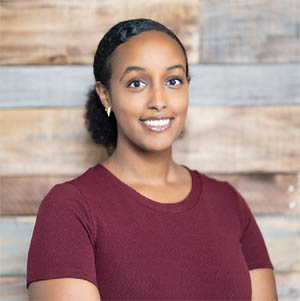
Sefanit Habtom
Sefanit Habtom is a Postdoctoral Scholar at the University of Washington's College of Education. She is the current Research-Practice Manager for the Early Literacy Collaborative, a codesign project with elementary school educators and Black families focused on designing literacy tools rooted in cultural and home-based practices and fostering family-educator relationships. Habtom holds a Ph.D. in Social Justice Education from the Ontario Institute for Studies in Education, University of Toronto. Her research focuses on Black student activism at postsecondary institutions and within their surrounding communities, and she utilizes participatory, visual, and critical qualitative research methods.

rosalind hampton
rosalind hampton works as an associate professor in the Department of Social Justice Education at the Ontario Institute for Studies in Education, University of Toronto. Professor hampton’s areas of teaching and research include Black radical thought, arts, critical-creative practice, Black Studies, student activism, and popular education. She is author of Black Racialization and Resistance at an Elite University (UTP, 2020).
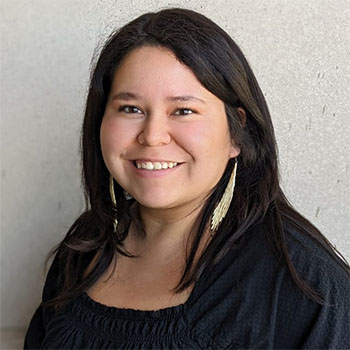
Diane Hill
Diane Hill comes from the Oneida Nation of the Thames and has been residing in Tkaronto for the last 10 years. She is a PhD student in the department of Social Justice Education at the Ontario Institute for Studies in Education. Hill’s work is concerned with Indigenous self-determination, climate action and food sovereignty in the field of critical Indigenous Studies. Previously, in her M.A. thesis, she interrogates these ideas by asking Indigenous food growers about their relationship to concepts and involvement with food sovereignty in Tkaronto. Hill’s work aims to understand more critically what assertions of sovereignty looks like for young Indigenous people.
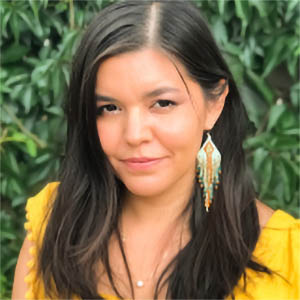
Leeza Holguin
Leeza Holguin is a Phd student at the University of Melbourne. Leeza is a scholar of early childhood education, special education, sociology and education, and educational policy. Leeza’s research is focused on the decolonization and reimagination of current educational practices within colonized lands with a particular focus on Indigenous education policy. Leeza has a professional background as a primary school teacher having taught in many diverse settings around the globe such as Japan, Kuwait, Hawaii, New York City and rural Alaska.
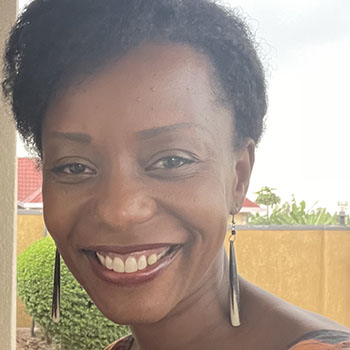
Natacha Jones
Natacha Ndabahagamye Jones is an Assistant Professor of Early Childhood at the University of North Texas. She engages Black feminist and critical frameworks in community-oriented research to center, document, and reimagine how children – especially those from communities that have historically been racialized, pathologized, and marginalized – experience schooling, enact their agency, and matter in school. Her over-a-decade-long experience as an early childhood and bilingual elementary school educator-teaching and learning with and from children, families, and various communities in and around Central Texas public schools-informs her research and teaching. Her research seeks to understand and interrogate educational practices and ecologies that sustain and build on the capabilities, curiosity, and identities of young children. Her work also examines traditional and non-traditional educational spaces that empower young children's ability to be critical, joyful, and community-oriented learners.
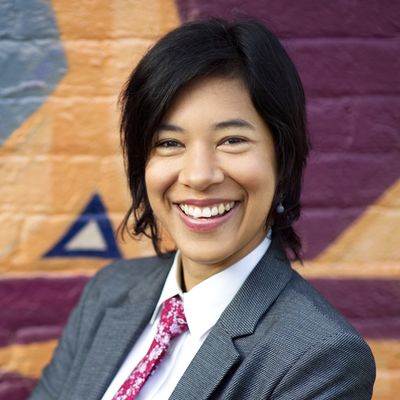
Ligia (Licho) López López
Licho López López (also Ligia), is of the Sinú river and the Caribbean, she is Quir and of Abiayala. She is currently a guest in the Aburrá Valley (Medellin, Colombia) where she lives and works at Universidad de Antioquia. Her work as an educator and curriculum scholar is committed to honour her Indigenous and Afrodiasporic roots. Her scholarship is committed to growing futures predicated on life and living energised by the beauty and possibilities of ancestral philosophies - Afrodiasporic and Indigenous of and in Abiayala. Before her arrival to Universidad de Antioquia as an associate professor, Dr López López worked as a teacher, teacher educator, and reasearcher in the Lands of the Ho Chunk Peoples at the University of Wisconsin-Madison (USA), in Wurundjeri-Woi-wurrung Lands at the University of Melbourne (Australia), from early childhood to secondary in the Aburrá Valley (Colombia), the Lands of the Mánu, Yesan (Tutelo), Occaneechi, Keyawee, and Cheraw (in North Carolina, USA), Iximuleu (Guatemala) and Tokyo, Japan. In community and collectively, Licho has written several books and articles on Indigenous matters (ie. The making of Indigeneity, Curriculum History and the Limits of Diversity, with Maya Peoples of Guatemala) and Afrodiasporic matters (i.e. Crecimos Antinegros en América Latina y El Caribe, with the Afro diasporas and Indigenous peoples of Abiayala). At Universidad de Antioquia, she works as a teacher educator in the Faculty of Education.
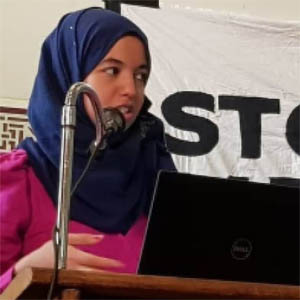
Tasnim Mahmoud Sammak
Tasnim Mahmoud Sammak is a PhD candidate at Monash University’s Faculty of Education, a single mum of two boys and a local Palestinian Muslim organiser in Naarm (Melbourne). Her research examines and theorises the emergence of 9/11 political subjectivities through counter-storytelling journeys of learning. She is a teaching associate at Monash University and the University of Melbourne.
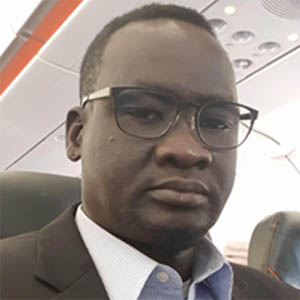
James Mayen
James Mayen is a PhD candidate in education at Deakin University, Australia. His PhD thesis is ‘Educational Aspirations and Experiences of South Sudanese Heritage Young Australians’. His study aims to identify, analyse, explore and understand the educational experiences and stories that young people of South Sudanese heritage in Australia share in developing and shaping their future educational aspirations and career choices. He completed postgraduate degrees in education research, politics, and policy and a Bachelor of Social and Community Studies. A sociologist researcher interested in social justice, youth education and employment with studies, including ‘Understanding Refugee Experiences: An Evaluation of the Training and Community Awareness’, during his tenure as a refugee trainer and community advocate for refugees and migrants in Australia. His other project was ‘the South Sudanese Young People and Family Connections. He has co-authored the book ‘The Dinka Folktales from South Sudan 2009’, following successful work with migrant children, youth and families in Australia. He is a school community liaison officer at the State School in Melbourne. He worked as a Community Researcher, Research Assistant and he has held various roles, including Cultural Consultant, Child and Family Mental Health Practitioner, Cultural Liaison, Community Project, Trainer, and Advocate. He is a member of the Australian Student Voice. A committee member developing the South Sudan National Qualifications Framework. E: jmayen@deakiin.edu.au
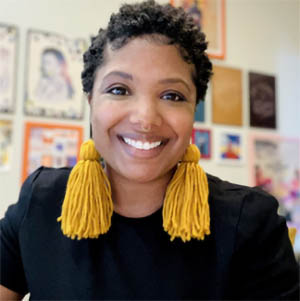
Terresa Moses (she/her)
Terresa Moses (she/her) is a proud Black queer woman dedicated to the liberation of Black and brown people through art and design. She is the Creative Director at Blackbird Revolt and an Assistant Professor of Graphic Design and the Director of Design Justice at the University of Minnesota. As a community engaged scholar, she created Project Naptural and co-created Racism Untaught. She is currently a PhD candidate in Social Justice Education at the University of Toronto. She serves as a core team member of African American Graphic Designers and as a collaborator with the Black Liberation Lab.
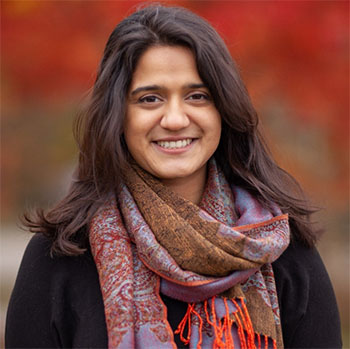
Preeti Nayak
Preeti Nayak is a PhD candidate at the Ontario Institute for Studies in Education, University of Toronto. Her doctoral research explores how racialized educators teach youth about local and global climate justice issues, both in the classroom and in community programs across southern Ontario. Broadly, her research interests are in climate justice pedagogy, epistemic diversity in curricula, and anti-racist and anti-colonial models of climate change education.
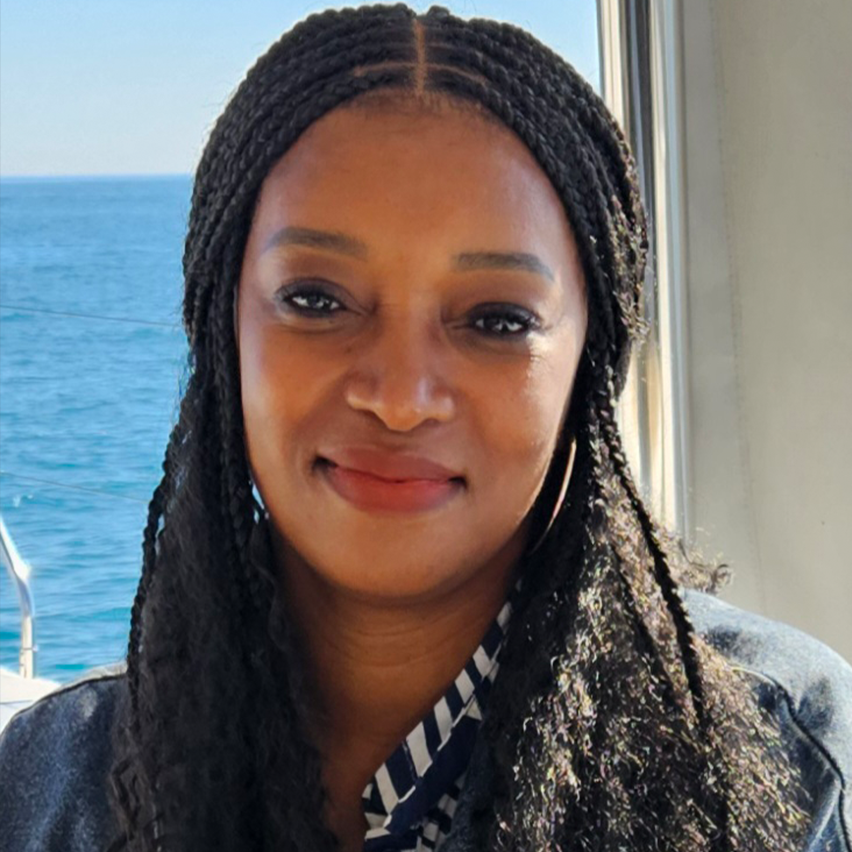
Fikile Nxumalo
Fikile Nxumalo is an Associate Professor in the Department of Curriculum, Teaching & Learning at the Ontario Institute for Studies in Education at the University of Toronto, where she directs the Childhood Place Pedagogy Lab and is also affiliated faculty in the School of the Environment and the School of Cities. Fikile is the author of over 60 scholarly publications, including her book Decolonizing Place in Early Childhood Education (Routledge, 2019). Her work seeks to make conceptual, methodological, curricular and pedagogical contributions in disrupting colonial erasures, anti-Blackness and anthropocentrism in education, particularly within current conditions of socio-ecological precarity.
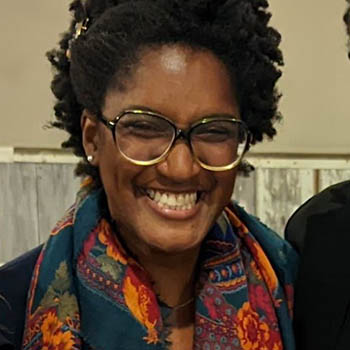
Nnenna Odim
Nnenna Odim (she/her) has spent her time listening to young children as a Kindergarten teacher, supporting regional leaders implementing state/city policy, designing academic research plans with communities in migration, and everyday moments laughing with family as testimonies of our knowledge!
Drawing on the intersections across Black Geographies, Indigenous & Place-Based Studies and Early Childhood Education, her dissertation was an interdisciplinary study into how families with mahogany, ash, and oak skin reinforce multiple ways of knowing. She has published articles about futuristic visions in early childhood, resisting anti-Black violence and inequity in Caribbean childhoods and Black geographies in early childhood studies.
Nnenna’s parents migrated to Turtle Island from Biafra and Nassau, Bahamas. She brings memories of Hammertan breezes and emerald waves to her current place on the lands of the Choctaw and Chitimacha (New Orleans). You can find her searching for french fries with a strong crunchy/soft ratio, listening to music shows with a magical trumpeter, and reading about migration policy.
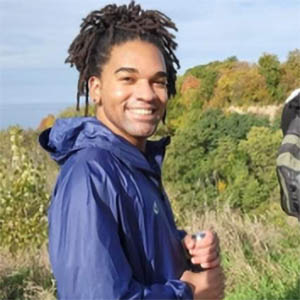
John Pierre (JP)
John Pierre (JP) Craig is a PhD candidate in Social Justice Education at the Ontario Institute for Studies in Education, University of Toronto. Their dissertation emerges from a youth participatory design collective in an afterschool land education program, where Black and Indigenous youth theorize climate crisis, urban more-than-human relations, and speculative futures with Land. Their work engages Black geographies, land education, and community-based and participatory research to delink from anthropocentric frameworks and settler environmentalism.
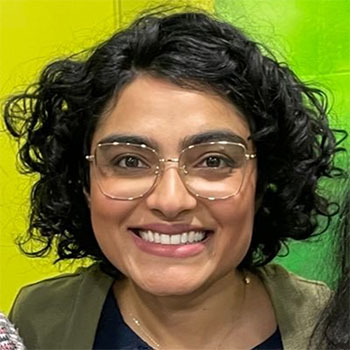
Nadia Qureshi
Nadia Qureshi is a PhD candidate in Curriculum & Pedagogy at the Ontario Institute for Studies in Education (OISE), University of Toronto. Her doctoral dissertation focuses on equity and access in education, with a particular emphasis on the experiences of Black students entering STEM post-secondary programs. Her general research interests include anticapitalism, anticolonialism, and antiracism, particularly in the context of education. She has been teaching in elementary, secondary and post-secondary contexts for over 15 years. She holds a Masters in Education, Bachelor of Education, and Bachelor of Science in biology.
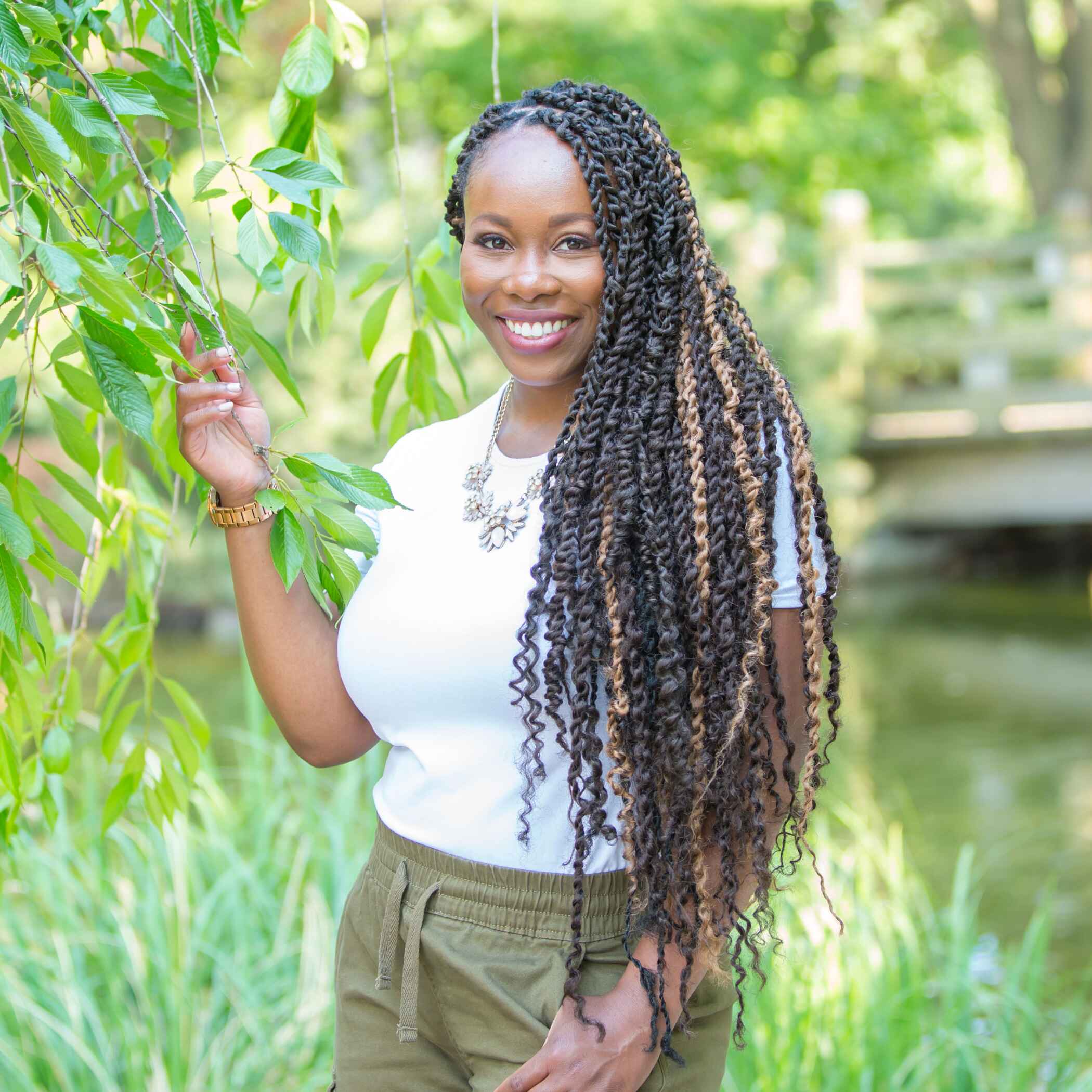
Alison Smith (she/her)
Alison Smith (she/her) is a graduate of the Master of Arts in Early Childhood Studies program at Toronto Metropolitian University and holds an Honours degree in Psychology, Neuroscience and Behaviour from McMaster University. Alison has worked in early childhood development projects in Nicaragua and Rwanda, with a focus on supporting teachers in early childhood and inclusive education. Alison has worked in community-based research for nearly a decade, both as Community Interviewer and Coding Analyst for the Black Experience Project and a Project Coordinator with the Inclusive Early Childhood Service System Project. Alison is currently a PhD student in Social Justice Education at OISE, University of Toronto. Her research interests include Black disabled childhoods, Black girlhood, global childhoods and antiracist early childhood education.
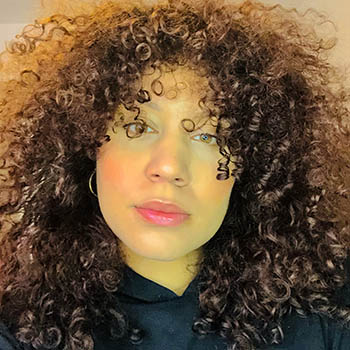
Kayla Webber
Kayla Webber is a Ph.D. student in the Social Justice Education Department at the Ontario Institute Studies for Education, University of Toronto, specializing in Women and Gender Studies. Her research interests are housing precarity, Black and Indigenous communities, models of wellness, anti-Black racism, anti-Indigenous racism, Black affirmation, sexualized violence, and transformative justice through the lens of storytelling and Hood feminism. Kayla Webber is currently undertaking research into past and current relationships among Indigenous, Afro-Indigenous and Black communities to inform sustainably healthy future relationships, with a focus on housing, especially housing for Indigenous, Afro-Indigenous, and Black Women and Girls who have and or are experiencing gender-based violence(s)/sexualized violence and how that housing is necessary for their health and safety. Webber’s ancestors and bloodlines are from Trinidad, Grenada, and Nova Scotia, but she was born, raised, and resides in the Eglinton West Little Jamaica community in Toronto. Webber is an 1834 Fellow Alumni, Co-Chair for the Indigenous Education Network, an advisor for the Toronto Strong Neighbourhoods Strategy in co-collaboration with Social Planning Toronto and the City of Toronto, and Vice-Chair for For Youth Initiative (non-profit co-collaborating/co-dreaming with Black, Indigenous, Afro-Indigenous, newcomer, and racialized youth).
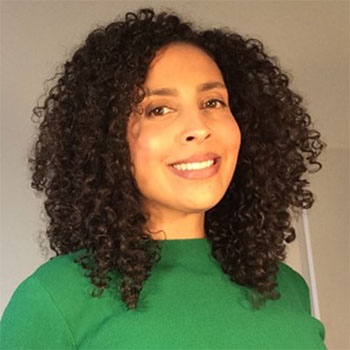
Hannah Yared
Hannah Yared is a registered psychologist and PhD Candidate at Monash University, Australia. Her research interests include topics exploring race and racism in education and psychology. Hannah’s PhD research examines student’s racial literacy, experiences of racism, and how this connects with their racial identity and sense of school belonging.